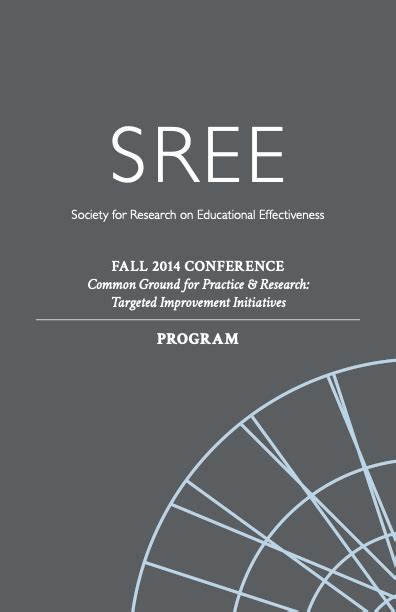In an era where conscious living is gaining momentum, the concept of “kindfulness” offers a refreshing approach to automotive consumption. Embracing kindfulness means integrating mindfulness into every aspect of our vehicle choices, from selecting eco-friendly models to adopting sustainable driving practices. This article explores how kindfulness can drive meaningful and sustainable decisions within the automotive world. By examining the connections between mindfulness and environmental impact, ethical manufacturing, and thoughtful vehicle maintenance, we highlight how mindful consumption fosters a more responsible and rewarding automotive experience. Join us as we delve into how kindfulness is reshaping the industry, promoting sustainability, and enhancing our overall well-being.
Delve into this topic with lealhotel.com to gain a thorough understanding.
1. Definition of Kindfulness in the Automotive Context
Kindfulness in the automotive context blends mindfulness with a compassionate approach to vehicle consumption. It emphasizes making thoughtful, deliberate choices that prioritize both personal well-being and environmental sustainability. At its core, kindfulness encourages consumers to reflect on the impact of their automotive decisions, aiming for a harmonious balance between functionality, ethics, and eco-friendliness.
In practice, kindfulness involves evaluating the entire lifecycle of a vehicle—from production to disposal—ensuring that each stage aligns with values of sustainability and responsibility. This means opting for vehicles with lower carbon footprints, supporting companies committed to ethical manufacturing processes, and choosing products and accessories that minimize environmental harm.
Moreover, kindfulness extends to driving habits, advocating for practices that reduce stress and promote safety while conserving resources. It fosters a holistic approach to automotive choices, encouraging individuals to consider how their decisions affect not only their own lives but also the broader community and environment.
By integrating kindfulness into the automotive world, consumers can drive positive change, contributing to a more sustainable and meaningful future. This mindful approach transforms vehicle ownership from a routine necessity into a deliberate expression of values and a commitment to making a difference.

2. The Connection Between Mindfulness and Sustainable Automotive Choices
Mindfulness and sustainable automotive choices are deeply interconnected, as both advocate for deliberate and conscious decision-making. Mindfulness encourages individuals to be present and reflective, which translates into making thoughtful choices that align with personal values and environmental responsibility. In the context of automotive decisions, this means being aware of the environmental impact of vehicles and opting for solutions that minimize harm.
Choosing a vehicle with sustainability in mind involves evaluating factors such as fuel efficiency, emissions, and the overall ecological footprint of the car. Mindfulness prompts consumers to consider these aspects carefully, leading to informed decisions that support a healthier planet. This might include selecting hybrid or electric vehicles, which offer lower emissions and reduced reliance on fossil fuels, or supporting manufacturers with robust environmental policies.
Furthermore, mindful consumption extends to the longevity and maintenance of vehicles. By prioritizing well-maintained cars and making repairs when needed, individuals contribute to reducing waste and extending the lifecycle of their vehicles. Mindfulness also influences the choice of automotive products and accessories, favoring those that are eco-friendly and sustainably produced.
In essence, the connection between mindfulness and sustainable automotive choices lies in the commitment to making choices that reflect a

3. Environmental Impact of Kindfulness: Reducing Carbon Footprint
Kindfulness significantly impacts the environment by focusing on reducing carbon footprints through conscious automotive choices. Adopting kindfulness means prioritizing vehicles with lower emissions and better fuel efficiency. Electric and hybrid cars, for instance, produce fewer greenhouse gases compared to traditional gasoline-powered vehicles, aligning with the principles of kindfulness by minimizing environmental harm.
Additionally, kindfulness encourages regular vehicle maintenance to ensure optimal performance and efficiency, which helps reduce fuel consumption and emissions over time. By choosing eco-friendly automotive products and accessories, such as biodegradable cleaning supplies or energy-efficient tires, consumers further contribute to lowering their carbon footprint.
The principle of kindfulness also extends to driving habits. Mindful driving—such as avoiding rapid acceleration, reducing idling, and carpooling—can significantly cut down on fuel consumption and emissions. Overall, kindfulness fosters a holistic approach to reducing carbon footprints, leading to a more sustainable automotive lifestyle that benefits both the individual and the planet.

4. The Role of Kindfulness in Ethical Vehicle Manufacturing
Kindfulness plays a crucial role in promoting ethical vehicle manufacturing by encouraging consumers to support companies that prioritize sustainable and humane practices. This approach involves selecting manufacturers that adhere to strict environmental standards and ethical labor practices. Kindfulness drives demand for vehicles produced with minimal environmental impact, using sustainable materials and energy-efficient production processes.
Consumers practicing kindfulness seek out manufacturers who commit to transparency and corporate social responsibility, ensuring that vehicles are made with respect for both people and the planet. This includes supporting brands that reduce waste, recycle materials, and invest in innovations that lower the ecological footprint of their products.
By choosing vehicles from ethical manufacturers, kindfulness fosters a market that values both sustainability and ethical integrity, ultimately influencing the automotive industry to adopt more responsible practices and contribute to

5. Mindful Consumption: Evaluating Vehicle Lifespan and Maintenance
Mindful consumption involves a careful evaluation of a vehicle’s lifespan and maintenance, emphasizing the importance of extending the life of automotive investments and minimizing environmental impact. A key aspect of kindfulness is choosing vehicles that are built for durability and long-term use. High-quality, well-engineered cars often last longer, reducing the need for frequent replacements and, consequently, the environmental impact associated with manufacturing and disposal.
Regular maintenance is essential in mindful consumption. Adhering to a vehicle’s maintenance schedule—such as timely oil changes, tire rotations, and brake inspections—ensures that the vehicle operates efficiently, which can improve fuel economy and reduce emissions. Proper upkeep also helps avoid more significant, resource-intensive repairs or premature replacement.
Furthermore, kindfulness encourages consumers to consider the entire lifecycle of their vehicle. This includes responsible disposal or recycling of parts and materials when the vehicle reaches the end of its life. By opting for recycling programs and environmentally-friendly disposal methods, individuals contribute to reducing automotive waste.
Ultimately, mindful consumption in evaluating vehicle lifespan and maintenance not only supports a more sustainable automotive industry but also fosters a more responsible approach to vehicle ownershi

6. Choosing Eco-Friendly Automotive Products and Accessories
Choosing eco-friendly automotive products and accessories is a key component of kindfulness, reflecting a commitment to sustainability and responsible consumption. Eco-friendly products are designed to reduce environmental impact while enhancing the overall efficiency and performance of a vehicle.
Start by selecting products made from sustainable or recycled materials, such as biodegradable cleaning supplies, reusable floor mats, and environmentally-friendly car covers. These choices help minimize waste and reduce the demand for non-renewable resources. Additionally, consider energy-efficient accessories like LED headlights and solar-powered chargers, which contribute to lower energy consumption and reduced carbon footprints.
When purchasing new automotive parts or accessories, opt for those that are certified by environmental standards or have received green certifications. This ensures that they meet specific criteria for sustainability and reduced environmental impact.
Moreover, mindful consumers should be aware of the life cycle of these products. Choosing items that are durable and have a long lifespan not only reduces waste but also minimizes the need for frequent replacements. By integrating eco-friendly products and accessories into automotive care, kindfulness promotes a more sustainable approach to vehicle ownership an

7. The Impact of Kindfulness on Financial Well-being and Cost Efficiency
Kindfulness positively impacts financial well-being and cost efficiency by encouraging smarter automotive choices that save money in the long run. Adopting a mindful approach to vehicle selection and maintenance often leads to more cost-effective outcomes. For instance, investing in a fuel-efficient or electric vehicle reduces fuel expenses and lowers overall operating costs. These vehicles typically offer savings on fuel and can benefit from various incentives, such as tax rebates or reduced tolls, further enhancing financial savings.
Regular maintenance, a core principle of kindfulness, also contributes to cost efficiency. Proper upkeep prevents costly repairs and extends the vehicle’s lifespan, reducing the need for frequent replacements. By adhering to maintenance schedules and using high-quality parts, drivers can avoid major issues and ensure their vehicle remains reliable and efficient.
Furthermore, kindfulness involves choosing eco-friendly products and accessories, which can lead to lower long-term expenses. For example, investing in energy-efficient accessories can reduce energy consumption and associated costs.
Overall, the principles of kindfulness help optimize financial well-being by promoting thoughtful spending, reducing operational costs, and extending vehicle longevity, leading to mo

8. Kindfulness in Driving Habits: Enhancing Safety and Reducing Stress
Kindfulness in driving habits enhances both safety and reduces stress by fostering a mindful approach to driving that prioritizes well-being and environmental impact. Adopting mindful driving practices involves being fully present and attentive on the road, which can significantly improve safety. For example, avoiding distractions, adhering to speed limits, and maintaining a safe distance from other vehicles help prevent accidents and promote a safer driving environment.
Mindful driving also reduces stress by encouraging calm and deliberate actions behind the wheel. Practices such as smooth acceleration and braking, avoiding aggressive maneuvers, and planning routes to minimize traffic congestion contribute to a more relaxed driving experience. These habits not only enhance personal comfort but also reduce the likelihood of road rage and anxiety associated with driving.
Additionally, kindfulness in driving involves being conscious of environmental impact. By adopting habits such as minimizing idling, practicing efficient driving techniques, and maintaining proper tire pressure, drivers can reduce fuel consumption and lower emissions. This mindful approach not only benefits the environment but also contributes to cost savings on fuel and vehicle maintenance.
In summary, kindfulness in driving habits promotes a safer, more relaxed, and environmentally responsible driving expe

9. Future Trends: The Role of Kindfulness in Shaping the Automotive Industry
The role of kindfulness is increasingly shaping future trends in the automotive industry, driving a shift towards more sustainable and ethical practices. As awareness of environmental issues and social responsibility grows, kindfulness is becoming a key influence on automotive innovations and consumer preferences.
Future automotive developments will likely prioritize eco-friendly technologies, such as electric and hybrid vehicles, reflecting a commitment to reducing carbon footprints. Kindfulness encourages manufacturers to invest in sustainable materials and production methods, leading to advancements in green technology and reducing the environmental impact of vehicle manufacturing.
Additionally, kindfulness is influencing the design of smarter, more efficient vehicles that integrate energy-saving features and promote mindful driving habits. Innovations such as advanced driver-assistance systems and telematics that optimize driving efficiency align with the principles of kindfulness by enhancing safety and reducing environmental impact.
The rise of kindfulness is also driving demand for greater transparency and ethical practices in the automotive supply chain. Consumers increasingly seek out brands that demonstrate a commitment to social and environmental responsibility, influencing companies to adopt more sustainable and ethical business practices.
In summary, kindfulness is poised to play a significant role in shaping the future of the automotive industry, fostering advancements in sustainability, safety, and ethical practices that align with a mindful and responsible approach to vehicle ownership.

Embracing kindfulness in the automotive world fosters sustainable and meaningful choices, enhancing both personal well-being and environmental health. By integrating mindful practices into vehicle selection, maintenance, and driving habits, individuals can contribute to a more responsible and ethical automotive industry, paving the way for a more sustainable future.
lealhotel.com